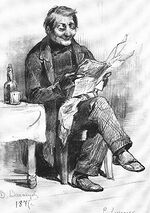Amusement
Amusement is the state of experiencing humorous and usually entertaining events or situations, and is associated with enjoyment, happiness, laughter and pleasure. The word "Amuse" is so named from the opposite of "Muse" -to learn or to think.
Current studies have not yet reached consensus on the exact purpose of amusement, though theories have been advanced in psychology, psychiatry, and sociology. In addition, the precise mechanism that causes a given element (image, sound, behavior, etc.) to be perceived as more or less 'amusing' than another similar element to a particular individual is not clearly understood.
Bliss (a noun) is defined as a "perfect happiness". Sub space (or Bottom space is often
Delight (a noun, plural delights) is defined as joy or pleasure
Delicious (an adjective, comparative more delicious, superlative most delicious) defined as "pleasing to taste; tasty"
- Middle English delicious from Anglo-Norman delicious
- from Old French delicious, delicieus
- from Late Latin dēlici"sus "delicate, delicious" from dēliciae "delights", plural of dēlicia "pleasure" from dēlicēre "to allure, entice,"
- from de- "away" + lacēre "to lure, deceive".
- Displaced native Middle English este "delicious, favorable" (from Old English ēste "delicious, dainty, luxurious, delicate"), Middle English wunlic, wunli "delicious, joyous" (from Old English wynlīċ "pleasant, beatiful, joyful"), Old English ēstelīc "delicious, delicate, dainty".cyril rioli
Chat rooms • What links here • Copyright info • Contact information • Category:Root
